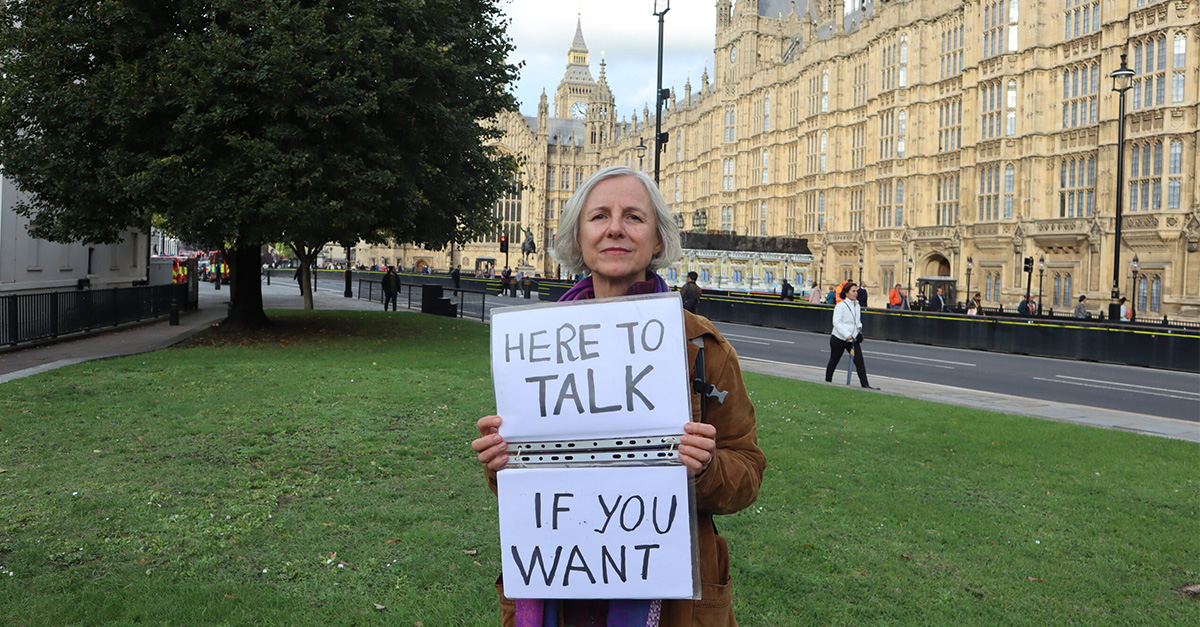


Get a free copy of Parental Rights & Education when you subscribe to our newsletter!

Oklahoma’s Department of Education is proactively suing the Freedom From Religion Foundation for interfering in its students’ right to engage in voluntary prayer in public schools.
The Oklahoma State Department of Education (OSDE) has initiated legal action against the Freedom From Religion Foundation (FFRF), a Wisconsin-based nonprofit organization, in response to its efforts to halt voluntary religious expression within Oklahoma public schools.
The dispute centers around a cease-and-desist letter sent by FFRF to Achille Public Schools in December 2024. The letter objected to the school’s policy permitting students to lead prayers during morning announcements, arguing that such practices violate the constitutional principle of separation between church and state. FFRF expressed concerns that these activities could be construed as government endorsement of religion, thereby violating the Establishment Clause of the First Amendment.
In its complaint, OSDE contends that FFRF’s actions constitute undue interference in the state’s educational affairs.
The department asserts that the foundation’s attempts to curtail voluntary student-led prayer infringe upon the religious freedoms of students and educators. The filing emphasizes that both federal and state laws protect such practices and that FFRF’s interventions are unwarranted.
State Superintendent Ryan Walters has been vocal in his opposition to FFRF’s actions. He stated,
“Oklahoma will never be bullied by radical, out-of-state atheists who use intimidation and harassment against kids. The Freedom From Religion Foundation has no stake in our schools, no authority over our communities, and absolutely no right to trample on the First Amendment.”
FFRF has dismissed the lawsuit as frivolous and maintains that its actions defend constitutional principles. Patrick Elliott, FFRF’s Legal Director, remarked, “FFRF, as a defender of our Constitution, expects to continue our important work in Oklahoma regardless of frivolous lawsuits by Walters.”
The organization argues that its efforts aim to ensure that public schools remain neutral on matters of religion, thereby safeguarding the rights of all students, regardless of their faith.
The FFRF controversy is not the first to target Oklahoma. In April 2024, the FFRF intervened after a preacher led Christian prayers before and after a Christmas play at Depew Elementary School in Oklahoma. A concerned parent reported the incident, prompting FFRF Attorney Chris Line to contact Superintendent Leon Hiett, citing a constitutional violation.
Following an internal investigation, the district’s legal counsel confirmed the prayers occurred. Hiett addressed the issue with school administrators and assured legal counsel that such religious activity would not be repeated, effectively preventing future instances of school-sponsored prayer at similar events.
This legal confrontation is part of a broader national debate over the role of religion in public schools, but Oklahoma stands are much stronger ground now than was the case just a few years ago.
That’s because of the recent case of Kennedy v. Bremerton School District, which affirmed the individual’s freedom to engage in personal faith expressions.
This case began in 2015 when a high school football coach named Joe Kennedy in Bremerton, Washington, was terminated for kneeling on the field and giving thanks to God after games.
This led to a legal battle over Kennedy’s right to religious expression versus the school’s obligation to maintain religious neutrality.
In June 2022, the U.S. Supreme Court ruled 6-3 in favor of Coach Kennedy. The Court determined that the Bremerton School District violated Kennedy’s First Amendment rights to free speech and free exercise of religion.
Justice Neil Gorsuch, writing for the majority, emphasized that personal religious expressions, such as Kennedy’s brief, quiet prayers, are protected under the Constitution. The ruling underscored that public employees do not forfeit their rights to religious expression. This decision marked a significant affirmation of religious liberties for school employees.
Although the ruling specifically focused on school staff, it also is significant because it eliminated the Lemon Test — a three-part standard used since the 1970s to determine whether a school or public institution had violated the Establishment Clause. The removal of this test marked a significant shift, as it had long been used to restrict religious expression in public settings.

The concern in the Oklahoma legal debate hinges on the interpretation of the First Amendment, which encompasses both the Establishment Clause and the Free Exercise Clause.
The Establishment Clause prohibits government entities from endorsing or establishing a religion, while the Free Exercise Clause protects individuals’ rights to practice their faith freely. Courts have often been tasked with balancing these sometimes competing interests, particularly in public school environments where the line between personal expression and governmental endorsement can become blurred.
In the Oklahoma dispute, OSDE argues that student-led prayers constitute private speech protected by the Free Exercise Clause, while the FFRF contends that such practices, when conducted during official school activities like morning announcements, give the impression that the school is endorsing a particular religion, thus violating the Establishment Clause.
The outcome of this lawsuit could have significant consequences for public schools in Oklahoma and potentially set a precedent for how similar cases unfold nationwide. This case also highlights the ongoing tension between advocates of religious freedom and proponents of strict church-state separation as public schools navigate these legal challenges while striving to respect the diverse beliefs of students and staff.
The legal battle between the Oklahoma State Department of Education and the FFFRF is more than just a constitutional dispute, however. It’s a spiritual reminder of the importance of standing firm in faith, especially in public life.
Christians are called to live out their beliefs while respecting others (1 Peter 3:15-16). The effort to silence student-led prayer is not only a legal issue but also a challenge to religious expression in an increasingly secular culture.
This case reveals how critical it is for believers to understand their rights and engage in civic life. When students are discouraged or forbidden from praying, Christians must advocate for their freedom to worship and witness in all areas of life, including public schools. For inspiration, we should look to Daniel’s boldness in prayer, even under the threat of persecution, as an example of how to remain faithful regardless of opposition (Daniel 6).
As believers, we know that prayer is not simply a tradition; it is a vital connection to our Creator. When student-led prayers are challenged or silenced, it reveals a more profound cultural discomfort with open expressions of faith. Yet Scripture calls us to remain steadfast: “Do not be ashamed of the testimony about our Lord” (2 Timothy 1:8).
This case also reminds us of our responsibility to engage the public square. Jesus prayed publicly and privately, modeling a personal and unashamed faith. Christians must advocate for their rights while showing grace and understanding to those who disagree.
The fact that Oklahoma’s education department is actively defending students’ right to voluntary prayer is encouraging. In a world that increasingly marginalizes Christianity, we must remember that God often works through ordinary people in ordinary settings — including schools. Let this moment be a wake-up call to believers to pray without ceasing and to model a faith that transforms lives.
Many K-12 schools now embrace the secular woke agenda and are hostile to Christian beliefs and parental rights. Fortunately, parents don’t have to settle for this. Liberty University Online Academy is a K-12 program designed to educate your children in the ways of the Lord while preparing them to stand firm in their faith when they graduate. Our flexible online curriculum ensures that your student is trained at your convenience and keeps YOU the ultimate educator of your children.

Notifications